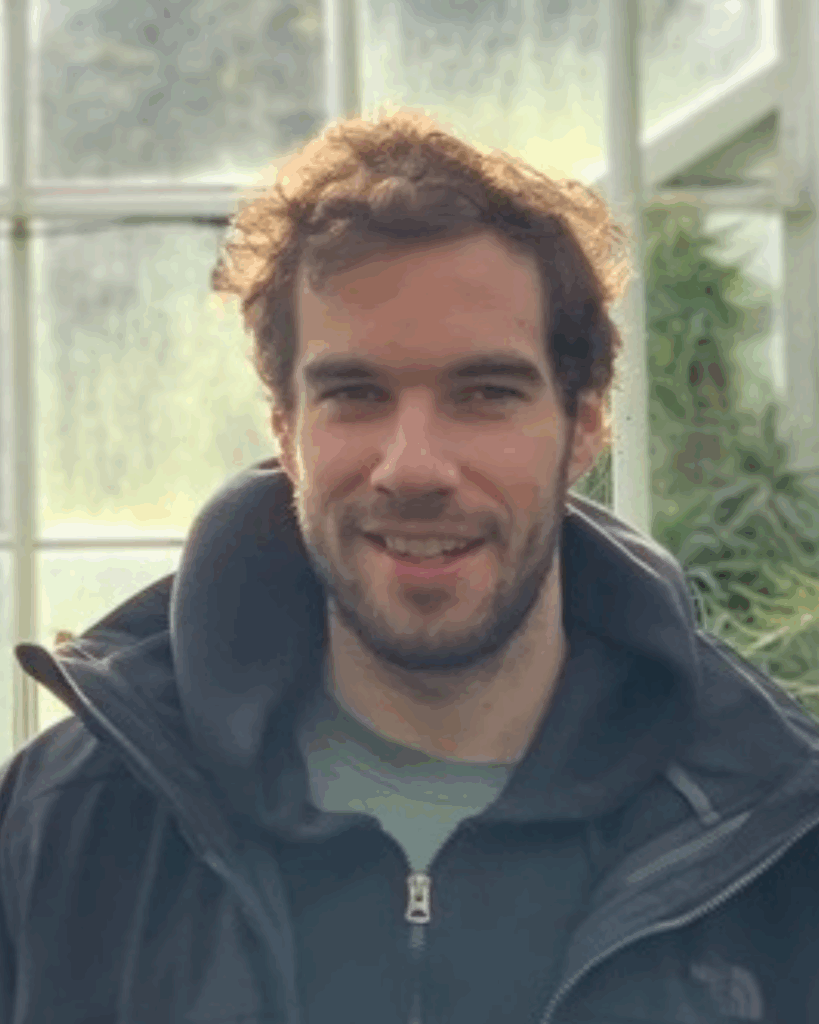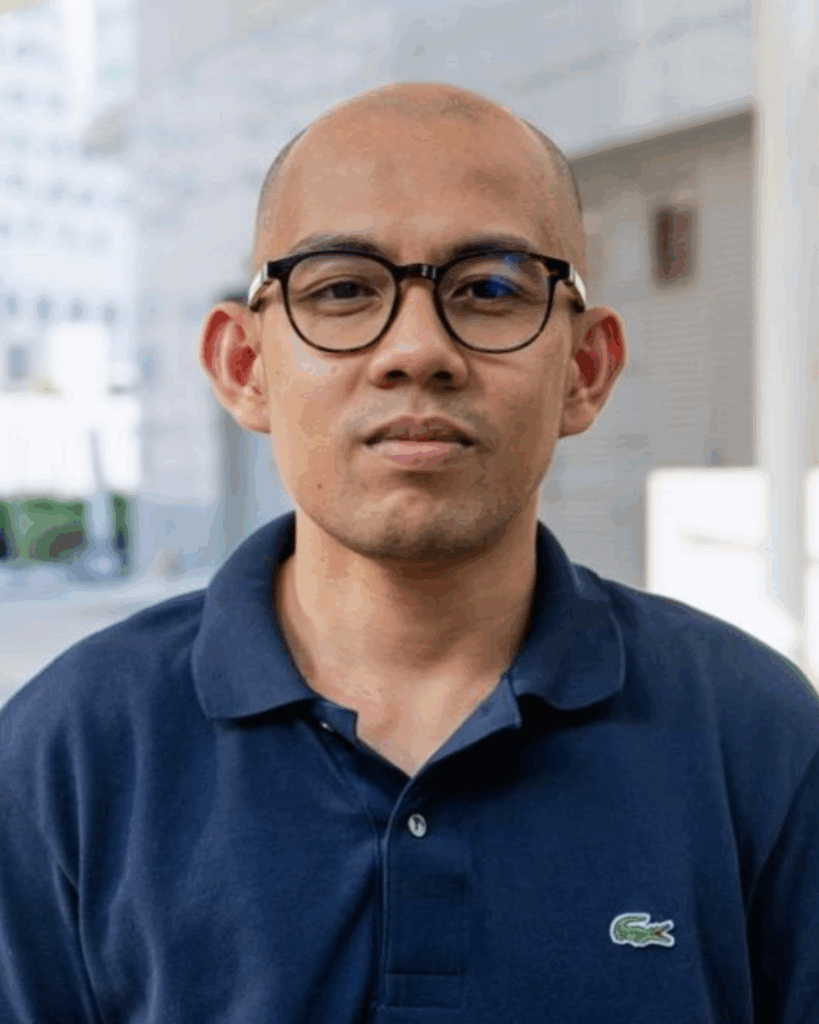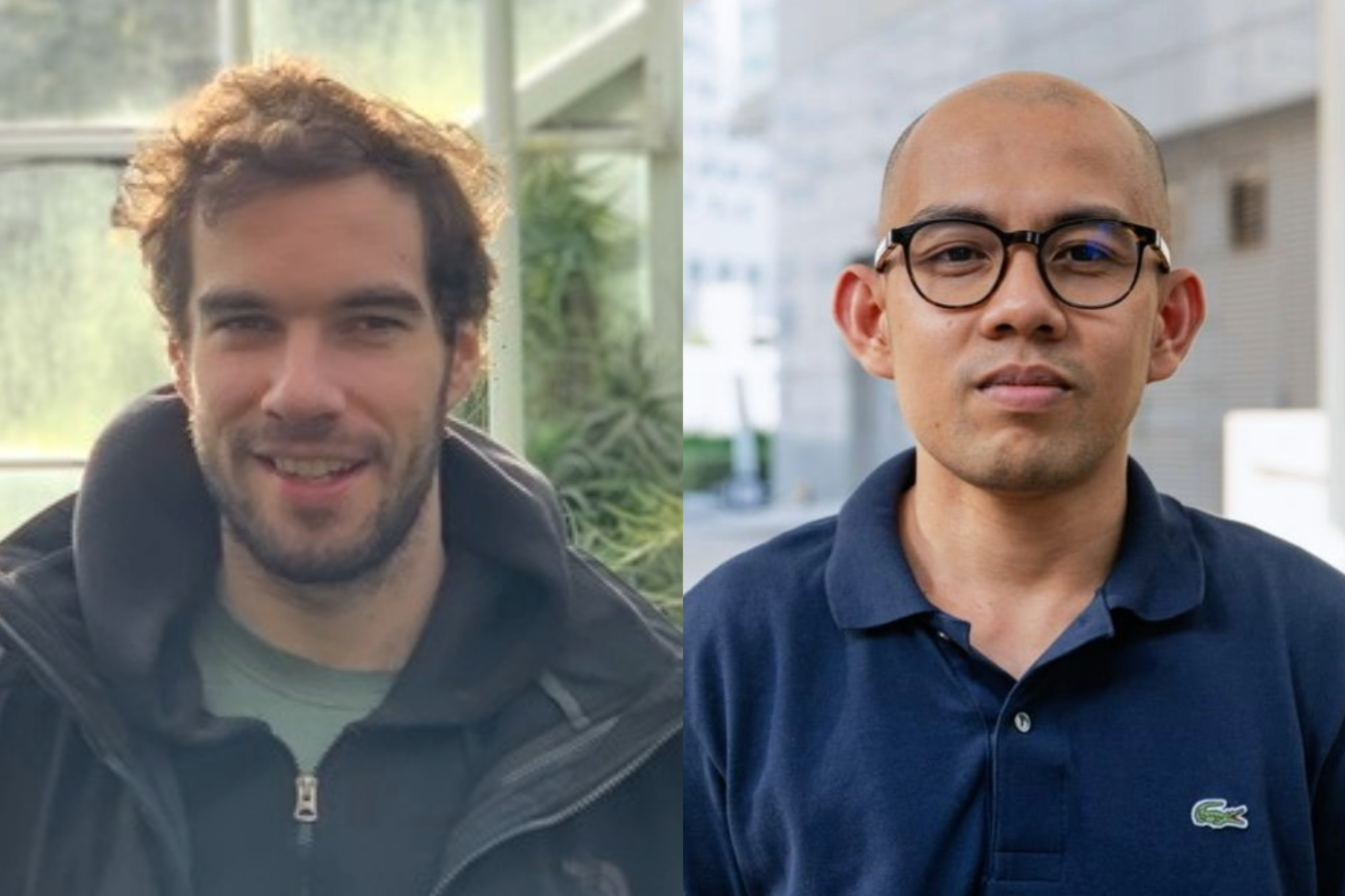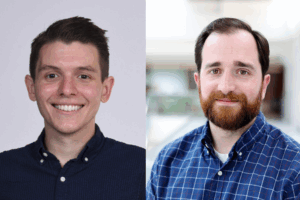New Math Faculty
July 17, 2025
Above: Petar Backic (left) and Daniel Sinambela
The Department of Mathematics is hiring a bumper crop of new faculty members for the 2025-26 academic year. Two of them are profiled here: Petar Bakić and Daniel Sinambela.
Finding the right questions
Petar Bakic

Patar Bakic
Petar Bakić, a Research Assistant Professor in the Department of Mathematics. Originally from Zagreb, Croatia, Bakić graduated from the University of Zagreb and pursued a career in academia in research and teaching. For him, mathematics is finding the right questions to ask rather than seeking the answers to them.
His work centers on representation theory — a field in mathematics that employs linear algebra concepts (such as matrices) for studying the symmetries of spaces. It provides a concrete way to understand abstract algebraic structures by expressing them through linear transformations of vector spaces. Though it is inherently abstract, it connects to other applicable fields including harmonic analysis, geometry, number theory, and physics.
Abstract math researchers are often unheralded, as the complexity and nature of their research means it is not broadcasted to the general public to the same degree as other research fields. However, Bakić is part of a broad research community that is conducting research at an unprecedented rate — helping to advance our collective understanding and to push the frontiers of mathematics.
Beyond the research lab, Bakić enjoys being outdoors and exploring Utah. The Wasatch is a particular favorite for him to go hiking and on bike rides. Above all for Petar Bakić though, are activities involving friends and colleagues.
by Ethan Hood
Jungles and Gyms
Daniel Sinambela

Daniel Sinambela
Jungles and gyms may seem like an odd place to turn to for a math metaphor, but it was the perfect combination to strike inspiration in Daniel Sinambela. While participating in the Putnam Mathematical Competition, his instructor Samuel Walsh (who would later become his Ph.D. mentor) told him this poignant comparison: “A math contest is much like training in a gym. You know what you are training for, you know the machines you’ll use. But math research is training in the jungle, where you have no idea what you’re about to run into.”
A structured environment vs. volatile and wholly unpredictable exploration is the difference between known solutions and research questions that may not even have an answer. It’s a fascinating contrast Sinambela looks back to at the onset of joining the U’s South Korean campus.
It’s been an adventure, starting at Tanjung Enim in Indonesia and then traveling across the Pacific to study at the University of Missouri. After collecting a Ph.D. there in applied mathematics he then hopped across the Atlantic for a postdoctoral researcher position at New York University in Abu Dhabi, UAE. As such he already brings plenty of experience with sister campus locations to bring to the end of this round trip in South Korea.
Throughout his education Sinambela’s research has focused on the area of nonlinear partial differential equations, specifically those that govern the motions of fluids. In this field he’s using equations like free-boundary water wave, Euler and Navier-Stokes, and Stokes-transport. He is studying existence theory and the stability/instability of solutions of those equations.
Between teaching and research, Daniel Sinambela is an avid guitar player and loves playing sports, skills that can be jungles and gyms in their own special ways. While he’s eager to teach in this new environment—to show students the ropes in these mathematics gyms — he hopes to show them the wonders of its jungle too. It may be imposing, you may not know what you face, or even if there’s an answer at all. But as he happily puts it, “That thrill is what makes it fun!”
by Michael Jacobsen




